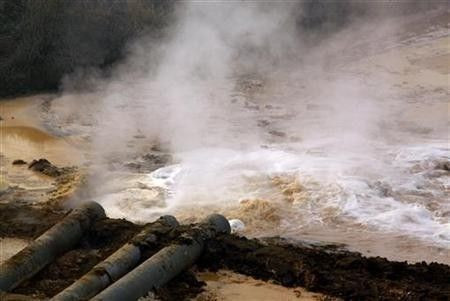Rising Rare Earth Prices Cripple Japan's June Imports

Japanese imports of rare earths from China fell 13 percent in June to 1,386 tonnes as a rise in prices made it unaffordable to many Japanese hi-tech companies.
According to the ministry of finance data, this is the second month-on-month drop in a row. As Western buyers of the all-important metallic elements failed to find new supplies and counter China's stranglehold on the market, prices have continued to shoot higher. In 2010 rare earth prices shot up fourfold.
"Orders from Japanese manufacturers for end-users to secure the material for July-September remain strong, but if the prices stay at elevated levels, the volume of imports may show a drop as Japanese buyers would be hesitant about accepting prices which are too high," Reuters quoted an official of a Tokyo trading house as saying.
A fortnight ago, the United States and the European Union had slammed China's partial easing of export control of the rare earth minerals, saying that Beijing was moving in the wrong direction.
Defying a WTO ban on export restrictions, China has historically clamped down on rare earth exports as it wants to conserve the precious resource for its own electronics and green energy industry. Beijing has even brandished the rare earth monopoly as a potential trade weapon in its game of political and economic one-upmanship with the US and Japan.
Rare earths are indispensable for high-tech industries and are heavily in demand in defense systems, electric cars, wind generators, hard-disk drives, mobile communication, missile guidance and the like. The 17 rare earth elements are lanthanum, cerium, praseodymium, neodymium, promethium, samarium, europium, gadolinium, terbium, dysprosium, holmium, erbium, thulium, ytterbium, lutetium, scandium and yttrium.
While the electronics industry as a whole depends a lot on rare earths, some industries need really high volumes of rare earths. For example, one kilogram of neodymium is required in the manufacture of a single Toyota Prius electric car.
China controls a whopping 97 percent of this market, making advanced industrialized nations heavily dependent on it for the supply of these essential chemical minerals. Technically viable alternatives to rare earth materials are not known currently.
Beijing brought in restrictions on rare earths exports last year in order to maximize profit and support domestic high-tech companies. China's commerce ministry has said the country has the right to cut export quotas to preserve exhaustible resources.
Industry observers aver that there is no significant change in China's rare earth policy. Continued clampdown on exports and state control on rare earths trade can cripple the thriving electronics industry of Japan, Taiwan, South Korea and the United States.
© Copyright IBTimes 2024. All rights reserved.



















